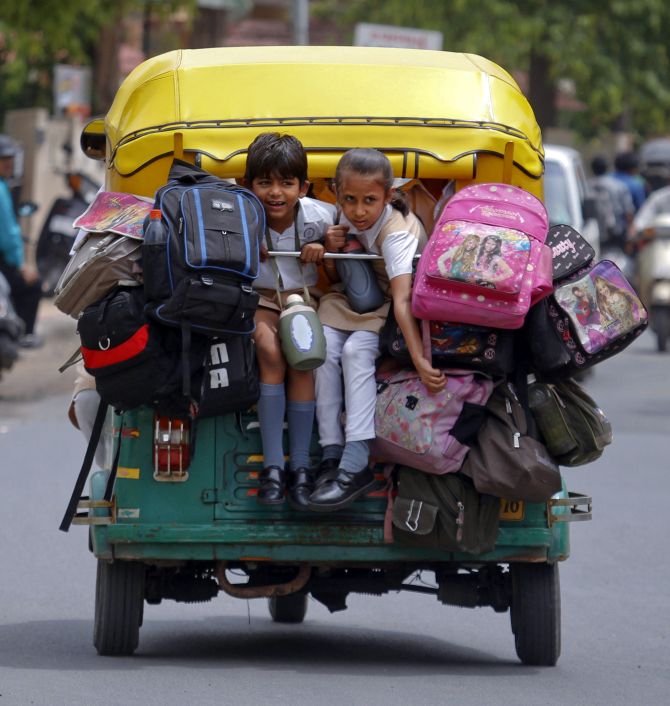
To visit his son and spend time with his grandchildren, retired army officer P P Dang (name changed) books an auto-rickshaw a day in advance, through dial-a-rickshaw service Autowale.
"The service is good, and I think they have the first-mover advantage in Pune city," he says.
Autowale has been in the city since 2011. Customers can avail of the service by calling the company's call centre at least an hour before they need an auto-rickshaw.
Or, they may choose to make a booking through the company's website or its android application. The company also offers pre-paid services and monthly billings.
For Chitra Rajagopalan, a dance instructor, time is vital. "Their service is up to the mark but it would have been nice if availability could be checked on a real-time basis. At times, it is not possible to make a booking an hour in advance. My professional demands make my timings very erratic," she says.
Mukesh Jha, chief executive of Autowale, however, says, "Bookings can be taken even half an hour before a ride."
…
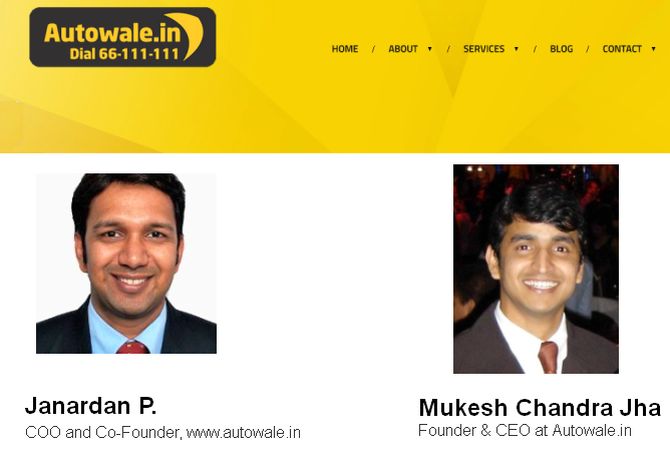
Jha, along with Autowale's chief operating officer, Janardan Prasad, both Indian Institute of Technology-Kanpur graduates, founded the company in 2010. However, after an eight-month pilot, they realised the company wasn't making money.
"Though there was a good response when we started, it wasn't enough and, therefore, the business wasn't bringing home any money. So, we took a break. We needed funds to make it work. We took up two projects to be able to fund our venture-route advisory for Pune Traffic Police during Ganpati 2010 and one for Delhi Traffic Police during Commonwealth Games 2010 to help citizens plan detours better during these events. We re-invested the money we earned through these ventures and re-launched Autowale in July 2011," says Prasad.
Business model
Autowale's business is primarily based on two models: First, a commitment through which Autowale buys kilometres from drivers in bulk, at a 50 per cent discount.
This means the company commits to pay a fixed amount to an auto-rickshaw driver every day, depending on the number of kilometres the driver commits to run daily.
…
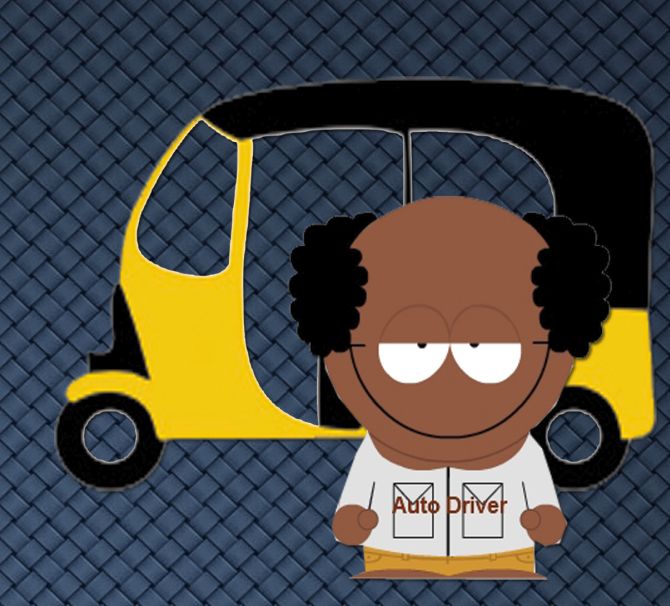
The rates stand at Rs 12,000 a month for 80 km/day, Rs 15,000 a month for 100 km/day, etc. The company benefits by increasing vehicle utilisation.
Margins vary from 20 per cent to 40 per cent. As drivers cannot refuse a ride, this model ensures the company has control over its fleet.
The other is the lead-sharing model, in which the driver pays an advance of Rs 1,000 a month to Autowale to secure customer leads. In this case, the driver may accept or refuse a trip.
Customers pay Rs 20 as a convenience fee to the driver over and above the fare; the driver passes this on to Autowale.
The service doesn't depend on tracking devices or global positioning system (GPS) systems at all.
"What we do is work on prediction. Depending on where the earlier ride is over, it is easy to guess the location of the driver, and this is the basis on which the next ride is planned for him. We give them connected rides, reducing the dead miles. In between, drivers are free to serve any customer, bringing over-head income for them. Despite GPS devices, the cab industry records about 40 per cent empty, while we are able to peg empty plying at 30 per cent," Prasad says with a smile.
…
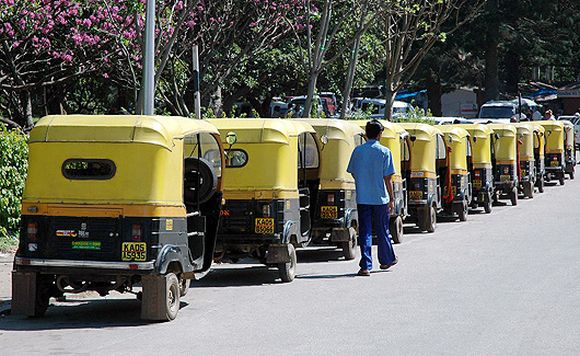
The company is using global system for mobile communications (GSM) tracking, aided by telecom company OzonTel. This, Autowale says, makes the model lighter and easily scaleable, with reduced investments.
Primary expenditures of the company include those on customer care support, operational processes, sales and marketing and administration-related activities, apart from charges (rent and fuel) for the auto-rickshaws running on the commitment model.
Autowale manages the expenditures through monthly gross profits. "By the next quarter, we'll be operationally profitable in Pune; we would be able to manage indirect costs such as expenditure on technology, management over-heads and the legal team, too. We'll be self-sustainable at 500 rickshaws in any city, 500 continuous plying rickshaws, that is. Our current driver base is 1,000. We plan to hit the target in Pune by the next quarter," says Prasad.
Finances
Initially, the venture had raised $0.5 million (about Rs 3 crore) with the help of angel fund GSF India, as well as from the founders' friends and families.
…
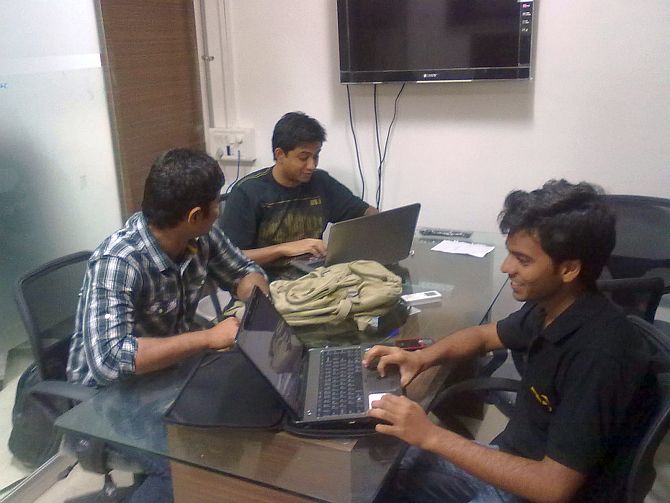
The company plans to raise about Rs 10 crore (Rs 100 million) in the next round of venture capital funding. It aims to record a turnover of about Rs 100 crore (Rs 1 billion) by the next financial year and about Rs 170 crore in the next three years.
"We are going to break-even in the coming month. Once that happens, we will look at the next round of funding. That money will be used for our expansion," says Jha.
The company says it would be ready to launch operations in Bangalore, after a five-month pilot and series-A funding.
Jha and Prasad plan to explore other cities, too, both across India and other Asian countries such as Thailand and Sri Lanka, after series-B funding. The venture is looking at organic growth for the Pune market and series-A funding for other markets.
Varied roads
While working on the Bangalore pilot, Jha and Prasad realised customer and driver acquisition weren't challenging - they were able to secure the first 100 drivers and the first 10,000 customers in a quarter.
However, they realise every city would be a different experience, in terms of culture, traffic patterns, demographics and public transport options.
…
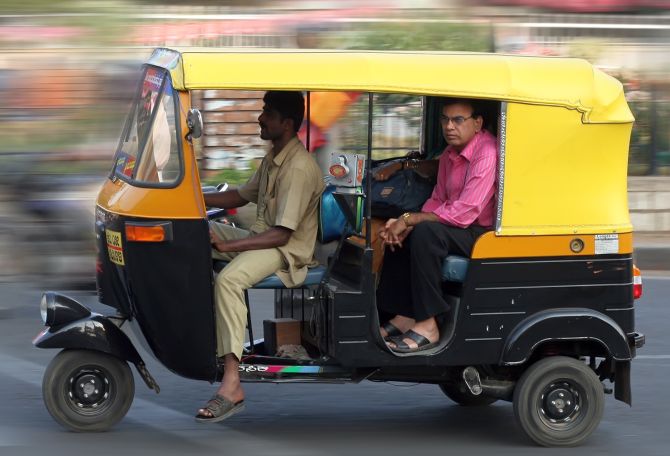
"The biggest challenge is the supply side. In India, auto licences are issued to individual drivers. To bring large-scale change in the way the market operates, we need thousands of drivers to sign up for the service. As far as regulation is concerned, it is a city/state matter. Governments should open up to the radio auto market the way they have opened the radio cab market to private entrepreneurs," says Rajesh Sawhney, founder, GSF India.
Bhavish Aggarwal, co-founder and chief executive, Ola Cabs, says, "In developing economies, rickshaws or equivalents such as tuk-tuks have a fairly large audience. So, this idea would work. Currently, it works on a two-way model, but I will vouch for the lead-sharing one. In the first system, in which the company pays a fixed amount to its immediate customers - the rickshaw drivers - they may not feel adequately motivated to ply more, as their income is not directly dependent on the number of rides. They get leads on a platter. If that happens, the company's revenues might be affected. Drivers plying on lead-sharing basis would be driven to convert more leads into earnings."
Drivers, the partners
Rickshaw driver Anil Sonawane, who has been with Autowale for about a year, says, "Since the time I have joined this service, I haven't had to worry about getting rides or empty-running. Now, I pick up pick up passengers very close to where I am; the next ride starts where the earlier one ends. My earnings have also gone up. I had signed up on a trial basis for a month and had decided to continue or quit, depending on the difference in my earnings. But now, there are no second thoughts."
…
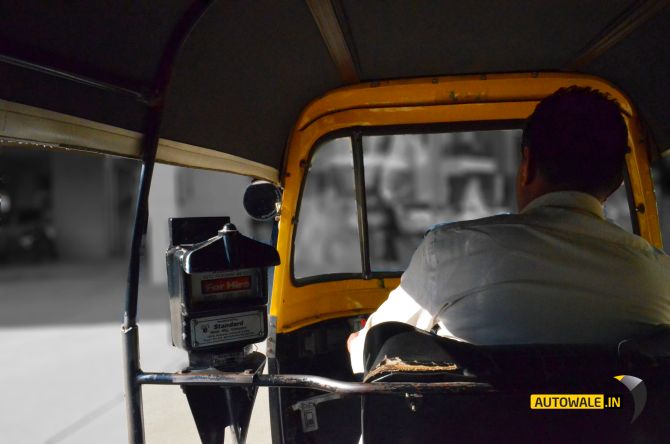
With Autowale, drivers' earnings have risen 50-100 per cent. Now, Sonawane earns between Rs 13,000 and Rs 18,000 a month, against Rs 10,000 earlier.
Though many rickshaw drivers are keen to sign up with Autowale, not all who apply are roped in by the company. The process involves detailed interviews and validation of documents.
The rigorous process is aimed at ensuring the team of drivers is well-behaved and cordial.
Autowale also runs sensitisation workshops and reward and penalty programmes for drivers on a regular basis.
While rewards include free distribution of Autowale branded rickshaw hoods, digital meters, uniforms, tyres, etc, a penalty may include temporary or permanent discontinuation of services, depending on the nature of complaints.
Autowale's founders have big plans. "Our idea is to work this system in accordance with available public transport and, therefore, come up with a first-mile-to-last-mile model that would work as a feeder service to the existent public transport system. After that, we would like to make it a pan-India service and merge it with online travel portals or successful radio-cab companies at some point of time," says Prasad.
…
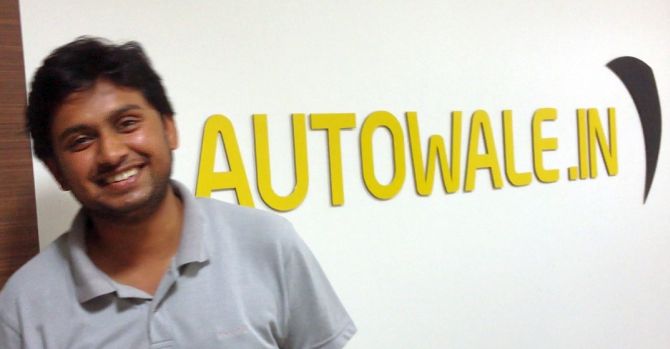
Expert Take
Gaurav Saraf is director, Epiphany Ventures
A business that drives efficiencies in an unorganised and fragmented industry through seamless information flow can create immense value for shareholders. This seems to be true of Autowale.
At the moment, the information flow isn't on a real-time basis and that is an area in which I would advise some caution. As the company scales up and manages a larger fleet, the current process could prove inefficient.
A strong information technology backbone to manage requests and dispatches would be the foundation of scaling a business such as this.
I understand the lead-time to book a ride is an hour, which if reduced to just-in-time servicing, would add further value to consumers and build a stronger brand-recall for the company.
Ultimately, the company would have to handle pan-India presence to be attractive to a potential acquirer.
As Autowale is the only such service in Pune, perhaps in other cities, too, it is in an enviable position of being able to control pricing if it can show evidence of rising incomes for drivers.
Therefore, before others enter the market, the company would have to expand to cities with a high density of auto-rickshaws to maintain its lead.
It is also essential to understand the exit options available for the venture's founder duo.